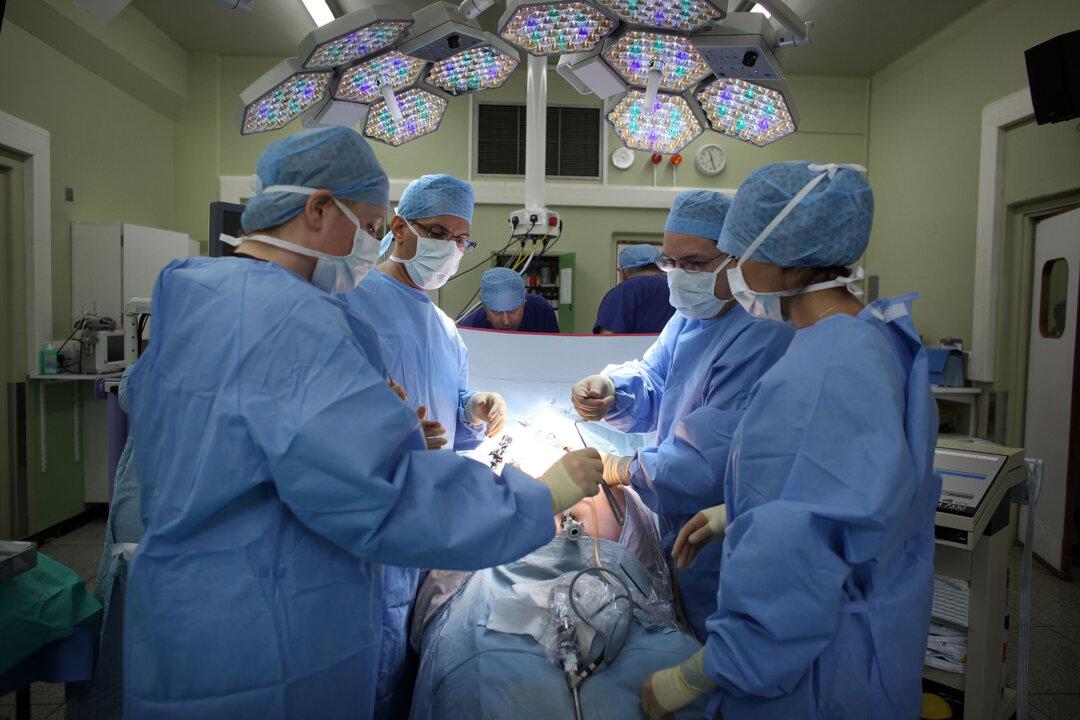A new report has revealed the NHS is accepting tens of millions of pounds annually from medical device companies whose products it promotes to patients, highlighting serious potential conflicts of interest.
Pharmaceutical companies are giving donations to UK hospitals to pay for staffing, training, and awareness campaigns, while at the same time marketing their products—including heart valves, diagnostic tools, and implants—to NHS trusts.
The companies reported paying more than 37 million euros (£32 million) to hospitals and other health care bodies in the UK over the three-year period, including payments to some of the biggest hospital trusts in England.
There are concerns among patient campaign groups that such donations could influence clinicians to recommend devices or procedures that may not be in the best interests of the individual.
A small number of medical companies accounted for the vast majority of donations, with pharmaceutical giant Johnson & Johnson disclosing the highest value of payments, with 184 million euros (£158 million) given to 27 countries.
Pelvic Mesh, PIP Implants, Defective Hip Replacements
Several scandals involving defective medical devices have impacted NHS patients in recent years, with women given dangerous vaginal mesh implants for pelvic prolapse still fighting for compensation. Johnson & Johnson, through its subsidiary Ethicon, manufactured pelvic mesh products that were used in the UK until 2018, when they were withdrawn after many women were seriously harmed.The PIP breast implant scandal saw women given implants made by a French company found to contain unapproved silicone gel, while the DePuy defective hip replacement scandal saw Johnson & Johnson having to pay compensation to the NHS to cover the cost of monitoring and operating on patients given the faulty devices.
The report analysed the disclosure database recording payments made by members of MedTech Europe, the trade association representing the medical technology industries, with 80 percent of all donations going to the health services of 10 nations.
The report’s authors highlighted that crucial information was missing from the data and called for a “European wide system of mandatory disclosure for the medical device and pharmaceutical industries” to address these shortcomings.
The Disclosure UK database, published since 2016 by the Association of the British Pharmaceutical Industry (ABPI), through which drugs companies should reveal payments made to health care organisations and individuals, excludes payments from medical device companies.
Johnson & Johnson manufactures medical devices including hip implants and surgical robotics and has made payments for “educational” purposes to several hospital trusts, including Guy’s and St. Thomas’s NHS Foundation Trust, Barts Health NHS Trust, and South Tees Hospitals NHS Foundation Trust.
U.S. company Edwards Lifesciences, which makes heart and other surgical valves, has made payments to several NHS hospital trusts, including a 2022 grant of £67,650 to fund a “nurse educator” at King’s College Hospital NHS Foundation Trust to support the delivery of a valve implantation programme.

‘Conflicts of Interest’
The report found: “Medical device industry payments to healthcare organisations (HCOs) can create conflicts of interest which can undermine patient care. One way of addressing this concern is by enhancing transparency of industry financial support to HCOs.”“Industry states that this money is to help pay for healthcare professionals’ education. However, these payments can have a negative impact on healthcare professionals’ decision-making.”
“We also assessed how comprehensive and user-friendly the database was and found a range of issues. For example, the database is not downloadable and some other important types of payments, such as payments for consultancy, are not included.”
‘First Do No Harm’
The report of the Independent Medicines and Medical Devices Safety (IMMDS) review, “First Do No Harm,” was published the UK in 2020 and called for the regulation and monitoring of medicines and medical devices to be strengthened in the wake of several medical scandals, including pelvic mesh.Yvette Greenway of the campaign group Mashed Up By Mesh told the review: “As patients, we allow the medical profession access to our bodies, our thoughts and our lifestyles. All manner of information to better assist them in reaching decisions about he best course of treatment for us. We, the patients deserve the same, we should be aware of clinicians’ allegiances or involvements whether they be financial or other so we too can reach informed decisions about who is best to treat us, and how they should treat us.”
The IMMDS review stated that researchers had “heard concerns about the potential conflicts that arise as part of the financial links between drugs and medical device companies and consultants, hospitals or other organisations. We are also concerned about those that arose as part of the personal and professional interests of clinicians (in the past, present and future).”
It raised concerns that the activities of the Medicines and Healthcare products Regulatory Agency (MHRA) were being funded primarily through the pharmaceutical industry on the medicines side, and 95 percent through the Department for Health and Social Care on devices, finding that approximately 11 percent of staff in the medical devices division of the MHRA were previously employed in the pharmaceutical industry.
Campaign group Sling The Mesh raised concerns in the IMMDS review about the MHRA being funded primarily by the pharmaceutical industry.
“The MHRA has been too close to the industry… underpinned by common policy objectives, agreed processes, frequent contact, consultation and interchange of staff … [we] have little faith in the ability of medical institutions that are responsible for patient safety to be open and transparent over patient safety failings,” the group said.







